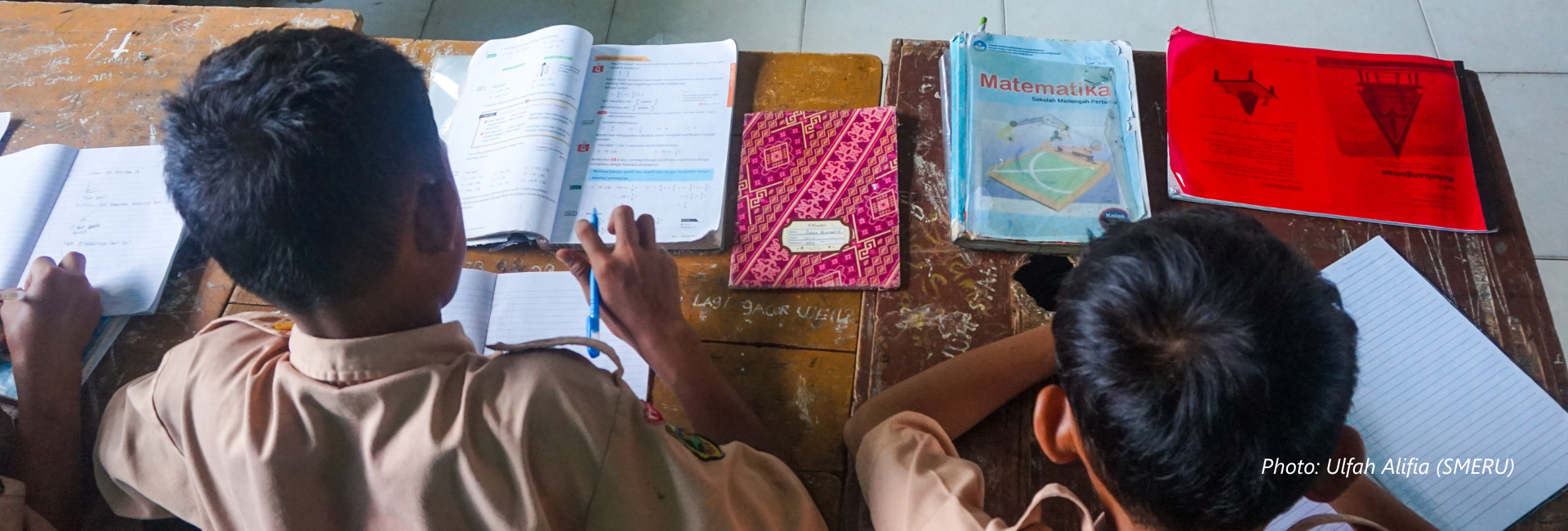Education is a key pillar of regional development because it is closely linked to human resource development, which in turn produces a skilled workforce that contributes to economic growth. In line with this, APRIL Group is committed to driving positive change in the education sector of Riau Province. After previously focusing on improving the quality of primary education, in 2025 the Community Development team of APRIL Group is expanding its program to include Grade 8 students in junior secondary schools across the province.
As an initial step in this expansion, APRIL Group has appointed SMERU to conduct a baseline study to establish a preliminary understanding of the quality of junior secondary education in the study area prior to the intervention. This study aligns with two key priorities: the government’s program to improve literacy and numeracy, and the company’s APRIL2030 vision under the Inclusive Progress pillar, particularly the Promote Quality Education component. The findings of this study are expected to guide APRIL Group’s Community Development team in designing education programs to support government programs, ensuring that efforts are impactful, well-targeted, and contribute to the broader national education goals. Additionally, the study will serve as a reference point for measuring the outcomes of future interventions, helping ensure that efforts to improve education in Riau lead to meaningful benefits for students.
This study establishes baseline data for assessing literacy and numeracy skills of junior secondary school students in APRIL Group ‘s partner schools across Riau Province.
The program covers 53 junior secondary schools across five kabupaten that are assisted by APRIL Group, with a qualitative sample involving six schools in three kabupaten (districts). Employing a mixed-methods approach combining qualitative and quantitative techniques, this study aims to deliver a comprehensive assessment of students’ literacy and numeracy skills.
Grade 8 was selected because students at this level have generally built foundational learning skills, are no longer in an adjustment period like those in Grade 7, and are not yet facing the pressure of final exams like those in Grade 9. Why focus on literacy and numeracy? Because they are the fundamental building blocks for measuring education quality.
The quantitative research team uses CERMAT (Comprehensive Reading and Mathematics Assessment Tool), a student learning assessment tool developed by SMERU, to assess student competencies. Furthermore, the team will gather data from school principals and teachers, specifically mathematics, natural sciences, and Indonesian language instructors within partnered educational institutions.
Meanwhile, the qualitative team gathers data through in-depth interviews with various respondent groups, including teachers, principals, students, and school committees.
With this approach, the study is anticipated to provide rich and actionable input for enhancing educational quality in Riau.



